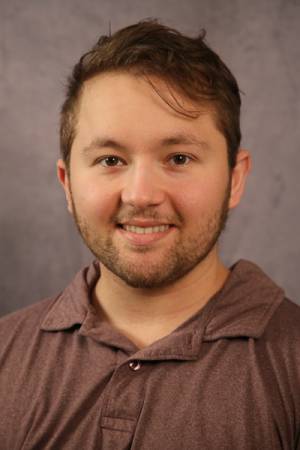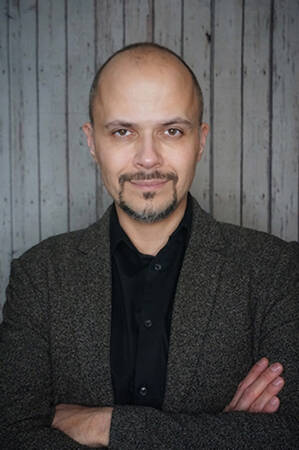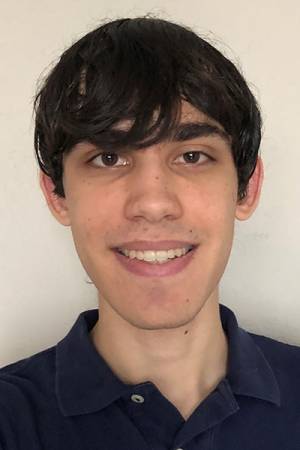Enabling Reliable Model-Based Planning with Inaccurate Models
Abstract: This thesis aims to provide a framework for combining complementary tools that enable robots to manipulate objects in the world using diverse forms of knowledge. We consider heterogeneous types of knowledge, such as physics-based models, learned dynamics models, and model-free skills learned from human demonstrations. Each form of knowledge comes with its own assumptions [...]
Unlocking Generalization for Robotics via Scale and Modularity
Abstract: How can we build generalist robot systems? Looking at fields such as vision and language, the common theme has been large scale end-to-end learning with massive, curated datasets. In robotics, on the other hand, scale alone may not be enough due to the significant multimodality of robotics tasks, lack of easily accessible data and [...]
Uncertainty and Contact with the World
Abstract: As robots move out of the lab and factory and into more challenging environments, uncertainty in the robot's state, dynamics, and contact conditions becomes a fact of life. We will never be able to perfectly predict the forces on the robot's feet as it walks through unknown mud or control the deflections of a [...]
Advancing Multimodal Sensing and Robotic Interfaces for Chronic Care
Abstract: The healthcare system prioritizes reactive care for acute illnesses, often overlooking the ongoing needs of individuals with chronic conditions that require long-term management and personalized care. Addressing this gap through technology can empower patients to better manage their conditions, enhancing independence and quality of life. Multimodal sensing, incorporating inertial, acoustic, and vision-based sensors, within [...]
RI Faculty Business Meeting
Meeting for RI Faculty. Agenda was sent via a calendar invite.
Towards Open World Robot Safety
Abstract: Robot safety is a nuanced concept. We commonly equate safety with collision-avoidance, but in complex, real-world environments (i.e., the “open world’’) it can be much more: for example, a mobile manipulator should understand when it is not confident about a requested task, that areas roped off by caution tape should never be breached, and [...]
Controllable Visual Imagination
Abstract: Generative models have empowered human creators to visualize their imaginations without artistic skills and labor. A prominent example is large-scale text-to-image generation models. However, these models often are difficult to control and do not respect 3D perspective geometry and temporal consistency of videos. In this talk, I will showcase several of our recent efforts to [...]
Low-Cost Multimodal Sensing and Dexterity for Deformable Object Manipulation
Abstract: To integrate robots seamlessly into daily life, they must be able to handle a variety of tasks in diverse environments, like cooking in restaurants or tidying up around the house. Many of the items in these environments are deformable such as fruits or bed sheets and a certain level of dexterity is necessary to [...]
Towards Spatial Intelligence for Behaviors and Environments
Abstract: We are in an era of foundation models and spatial intelligence (AR/VR). Despite significant advancements in natural language processing for reasoning, other modalities like vision lag behind, offering limited contributions: current video-language models (VLMs) struggle even with basic spatial reasoning tasks. The challenge lies in the disparate training needs of different modalities. To enhance [...]
Developing Physically Capable and Intelligent Robots
Abstract: Dr. Rizzi will provide an overview of the ongoing work at the Robotics and AI Institute (RAI Institute) and its ongoing research efforts focused on the design and control of the next generation of intelligent and capable robotics systems. The focus is on the development of systems capable of performing complex dynamic tasks at [...]
Discovering and Erasing Undesired Concepts
Abstract: The rapid growth of generative models allows an ever-increasing variety of capabilities. Yet, these models may also produce undesired content such as unsafe or misleading images, private information, or copyrighted material. In this talk, I will discuss practical methods to prevent undesired generations. First, I will show how the challenge of avoiding undesired generations [...]
Mass-Constrained Robotic Climbing on Irregular Terrain
Abstract: Climbing robots can operate in steep and unstructured environments that are inaccessible to other ground robots, with applications ranging from the inspection of artificial structures on Earth to the exploration of natural terrain features throughout the solar system. Climbing robots for planetary exploration face many challenges to deployment, including mass restrictions, irregular surface features, [...]
Towards Annotation-Free Visual-Geometric Representations and Learning for Navigation in Unstructured Environments
Abstract: Navigation in unstructured environments is a capability critical to many robotics applications such as forestry, construction, disaster response and defense. In these domains, robots have the potential to eliminate much of the dull, dirty and/or dangerous work that is currently performed by humans. Unfortunately, these environments pose a unique set of challenges for navigation [...]












